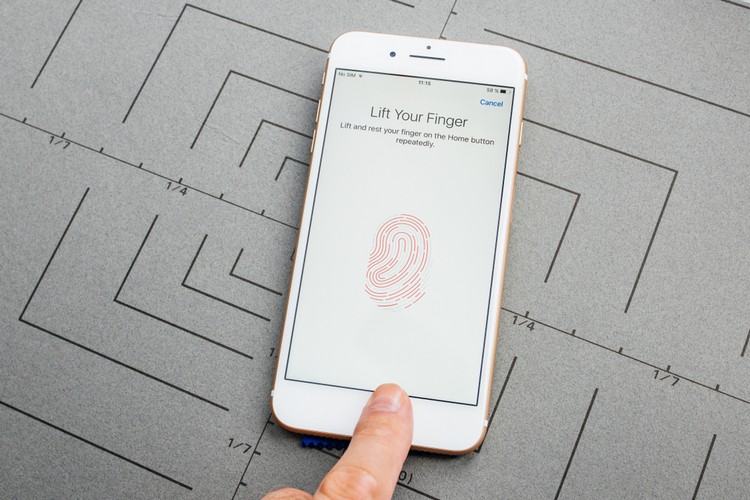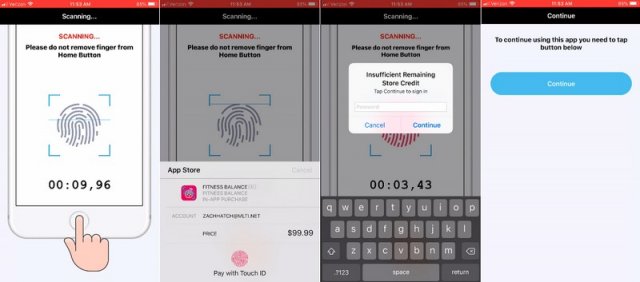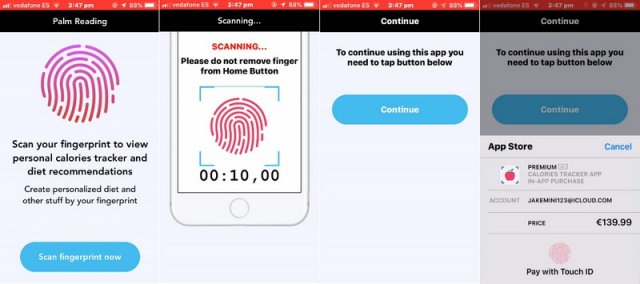iOS Apps Exploiting Touch ID To Scam Users
Harin - Dec 05, 2018

Apple has deleted several iOS fitness apps from the App Store after they were found trying to scam users into authenticating payments and charging them a fee from $99 to $139.
- Best Gaming Phones 2025: Top Devices for Mobile Gaming
- Microsoft Partners with CBI to Bust Major Tech Support Scam Operation
- Apple Kills Original HomePod, Focusing On HomePod Mini
Several iOS fitness apps have been deleted from the App Store after they were found trying to scam users into authenticating payments and charging them a fee from $99 to $139.
WeLiveSecurity recently detected some apps’ suspicious activities as they asked users to place their fingers on the fingerprint scanner with the purpose of collecting health data. However, they exploit these Touch ID data to authenticate payments.
A process which usually took users more than a few seconds using complicated passwords, to a few seconds using four or six-digit PIN, was now reduced to about a second using fingerprint methods. Users have reported that at least three fake fitness apps were trying to scam them into using their Touch ID to make a high fee payment. After receiving the complaints, ‘Fitness Balance’, ‘Calories Tracker’ and ‘Heart Rate Monitor’ have then been deleted by Apple. These three apps all used the same method as mentioned above.
A Reddit user already started a topic about this incident, in which many people commented they were also tricked since the message for payment authentication pop up when they were scanning their finger for heart rate measuring or any other health relating information.
Because a great deal of users uses Touch ID for payment authentication, the fraudsters take advantage of this. Moreover, because of the speed of authentication using Touch ID, before users completely understand what is happening, the payment of $99.99 has already been made.
To make these scammy apps seem legitimate and to ensure people will fall for it, fake reviews were posted. These apps were even rated 5-star on the App Store. Victims trying to contact the developers of the app after being scam would receive a reply saying that it was only a bug and everything will be fixed after an update.
The good news is that this incident can be prevented if users disable iTunes and App Store‘s Touch ID payment authentication feature.
Featured Stories

ICT News - Jul 05, 2025
Windows 11 is Now the Most Popular Desktop OS in the World

ICT News - Jul 02, 2025
All About Florida’s Alligator Alcatraz: A Smart Move for Immigration Control

ICT News - Jun 25, 2025
AI Intimidation Tactics: CEOs Turn Flawed Technology Into Employee Fear Machine

ICT News - Jun 24, 2025
Tesla Robotaxi Finally Hits the Streets: $4.20 Rides That'll Make You Hold Your...

ICT News - Jun 24, 2025
World's First Flying Humanoid Robot Takes Flight

ICT News - Jun 24, 2025
When Closed Source Met Open Source: Bill Gates Finally Meets Linus Torvalds After...

Gadgets - Jun 23, 2025
COLORFUL SMART 900 AI Mini PC: Compact Power for Content Creation

ICT News - Jun 22, 2025
Neuralink Telepathy Chip Enables Quadriplegic Rob Greiner to Control Games with...

ICT News - Jun 20, 2025
Tesla vs Zoox vs Waymo: Who would win?

ICT News - Jun 19, 2025


Comments
Sort by Newest | Popular